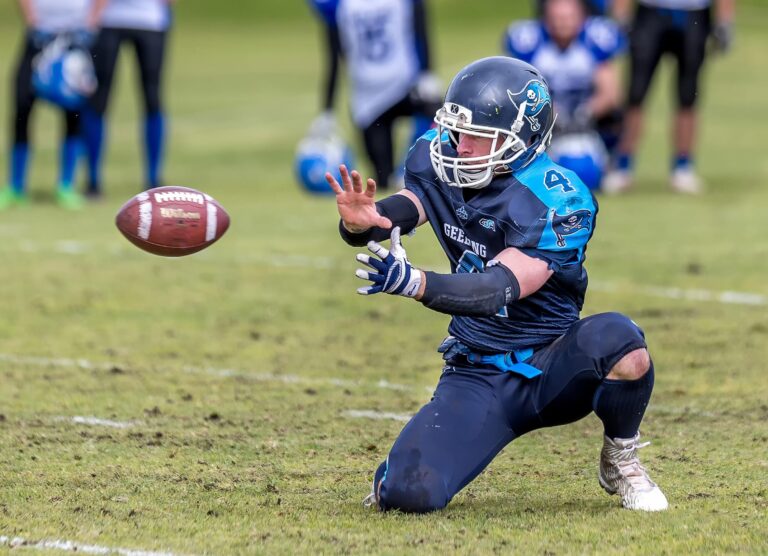“Minnesota’s Sports Betting Bill: What You Need to Know”
The state of Minnesota is on the brink of legalizing sports betting. The recently proposed Minnesota Sports Betting Bill has been gaining traction and it’s important to understand what this bill entails. As one of the first states in the Midwest region to consider such a proposal, understanding how “Minnesota Sports Betting Bill” works will be essential for anyone interested in taking part when legalized gambling goes into effect.
Sports betting has become increasingly popular over recent years as more and more states are looking at ways to generate additional revenue from taxation while providing an exciting new form of entertainment for their citizens. With its expansive landscape that includes professional teams like the Vikings, Twins, Timberwolves, Wilds – all with dedicated fan bases – there’s no doubt that legal sports wagering would bring a huge influx of cash flow into Minnesota coffers if passed by lawmakers.. It’s also expected that many local businesses could benefit from increased tourism related activities associated with people visiting venues where they can place bets legally under these regulations.
This blog post provides readers with an overview about what we know so far regarding Minnesota Sports Betting Bill”. We’ll look at who introduced it; any current developments or progress being made; potential benefits should it pass; and some other key points you need to keep track off before making your own decisions whether or not this type activity interests you personally once officially approved by legislators
Minnesota Sports Betting Law Overview
The Minnesota sports betting bill was signed into law in 2019, making it the first state to legalize and regulate online sports wagering. The new legislation allows for both mobile and retail sportsbooks to operate within the state’s borders. This means that residents of Minnesota can now place bets on their favorite teams from anywhere in the world using an app or website provided by a licensed operator. Additionally, there are no restrictions as far as what types of events may be wagered upon; this includes college games, professional leagues such as NFL and NBA, international competitions like soccer matches around Europe or Asia Pacific region etc., along with fantasy contests.
Under the terms of this new law all operators must obtain a license from either local government authorities or tribal gaming entities before they can offer any type of gambling services including but not limited to offering lines on sporting events taking place outside its jurisdiction (i.e.: overseas). All revenue generated through these activities will go towards funding education initiatives throughout Minnesota while also providing additional tax revenues which will help bolster public coffers across various levels – municipal/county/state-wide level alike .
In addition , strict consumer protection measures have been put in place under this legislation ; such regulations include age verification requirements when signing up for accounts , responsible gambling protocols being enforced at every stage during gameplay , secure banking options so customers funds remain safe & sound at all times etc.. These steps ensure players enjoy fair play without fear nor risk whilst engaging with legal MN based bookmakers & other related service providers associated with them .
Regulatory Framework for Gambling in Minnesota
The state of Minnesota has recently been considering the possibility of legalizing sports betting. The proposed bill would create a regulatory framework for gambling in the state, allowing operators to apply for licenses and offering customers access to legal online gaming platforms. This move could bring significant economic benefits as well as increased tax revenue from this new industry sector. It is important that any legislation passed provides adequate consumer protection measures such as responsible gaming policies and safeguards against underage gambling or money laundering activities. Additionally, it should also ensure fair competition among license holders by providing clear rules on advertising practices and pricing structures while preventing market manipulation through unfair business practices like predatory pricing strategies or collusion between competitors. Ultimately, these regulations will help protect consumers while encouraging innovation within the industry which can lead to greater choice and better value for players in Minnesota’s burgeoning sports betting scene
Impact of the Bill on Local Economy and Taxation
The Minnesota sports betting bill is expected to have a positive impact on the local economy and taxation. The legislation will allow for legal, regulated sports wagering in the state which could generate millions of dollars in tax revenue each year. This money can be used to fund important public services such as education, infrastructure improvements or other social programs that benefit citizens across Minnesota. Additionally, it may also create jobs within the industry itself and stimulate economic growth by bringing more people into businesses related to gambling activities like casinos or racetracks. Finally, this law could provide an additional source of income for small business owners who are already struggling due to COVID-19 restrictions imposed throughout 2020; allowing them another avenue through which they can make up lost profits from their regular operations while still following all applicable regulations set forth by lawmakers at both federal and state levels alike.
Social Implications of Legalized Sports Betting in MN
The recent passing of the Minnesota sports betting bill has raised many questions about its potential social implications. With legal gambling now available in the state, there is a need to consider how this will affect Minnesotans and their communities. From an economic standpoint, legalized sports betting could provide much-needed revenue for both local businesses and governments alike; however, it also carries with it certain risks that must be taken into account before allowing widespread access to such activities.
On one hand, legalizing sports betting may bring increased tourism opportunities as well as job creation within related industries like hospitality or gaming operations. This would result in greater spending power throughout the state which can lead to further growth of existing small business owners who depend on customers from outside areas visiting them regularly. Furthermore, additional tax revenues generated by these establishments could help fund important public services while providing more resources for educational programs and other initiatives designed to benefit all citizens regardless of where they live or what type of income they make annually.
At the same time though, some worry that unrestricted access to gambling might encourage irresponsible behavior among those already prone towards addiction issues or put vulnerable individuals at risk due financial losses incurred through placing bets without proper knowledge about odds/payouts associated with each game being wagered upon – thus leading people down paths filled with debt rather than prosperity if not monitored closely enough over extended periods time . It’s essential then that lawmakers take extra precautions when introducing new regulations around MN Sports Betting Bill so everyone involved understands consequences beforehand & are able remain safe during entire process no matter outcome eventually achieved once dust settles after final decisions made regarding implementation procedures have been finalized
Challenges Facing Implementation of the Legislation
The passage of the Minnesota sports betting bill has been hailed as a major victory for proponents of legal wagering in the state. However, there are still many challenges that must be overcome before it can become law and take effect. One such challenge is getting approval from all eleven tribes located within Minnesota’s borders who have expressed concerns about how this legislation will affect their own gaming operations. In addition to gaining tribal consent, other issues like determining which types of bets would be allowed and establishing an effective regulatory framework need to be addressed prior to implementation.
Finally, while most states have opted for online or mobile sportsbooks as part of their legislative efforts, due largely in part because they generate more revenue than land-based casinos alone; however with some key stakeholders expressing opposition towards any form internet gambling it remains unclear if these platforms will ultimately play a role in the future success or failure of legalized sports betting here in Minnesota. Ultimately only time will tell what shape this new industry takes but one thing is certain: significant hurdles remain ahead before we see widespread acceptance and use among Minnesotans looking to place bets on sporting events legally inside our state lines .
Comparison with Other States’ Laws on Sports Wagering 7 .Implications for Online/Mobile Gaming Platforms
The recent passage of the Minnesota sports betting bill has brought into focus the legal framework surrounding online and mobile gaming platforms in other states. A comparison with laws governing these activities in other jurisdictions can provide valuable insight on how to approach similar legislation here.
In many cases, state legislatures have been proactive when it comes to regulating online/mobile gaming activity within their borders. States like New Jersey, Pennsylvania, Delaware and West Virginia all passed comprehensive bills that outline regulations for operators offering real-money wagering through web or app-based interfaces. These measures typically include provisions such as licensing requirements for operators; taxation structures; consumer protection guidelines; age verification procedures; geo-location technology usage protocols etc., which are designed to ensure a safe and secure environment for players engaging in this type of entertainment option from home or while traveling across state lines .
It is important that lawmakers take note of what works (and doesn’t work) elsewhere before crafting any new rules pertaining to internet gambling sites operating out of Minnesota – especially given its close proximity with several states where digital casino games are already allowed under law – so they can be sure they create an effective regulatory system without overburdening businesses who wish to offer services within our boundaries
Conclusion
Minnesota’s sports betting bill is an exciting development for those looking to place bets on their favorite teams. With the passage of this new law, Minnesota residents can now legally bet on sporting events and take advantage of a wide variety of wagering options. However, it’s important to do your research before you start placing any bets in order to ensure that you’re making informed decisions about where and how much money you are putting at risk. We encourage all our readers to use trusted links and reviews when researching web design services related to online sports betting in Minnesota so they know exactly what they’re getting into before taking the plunge!







